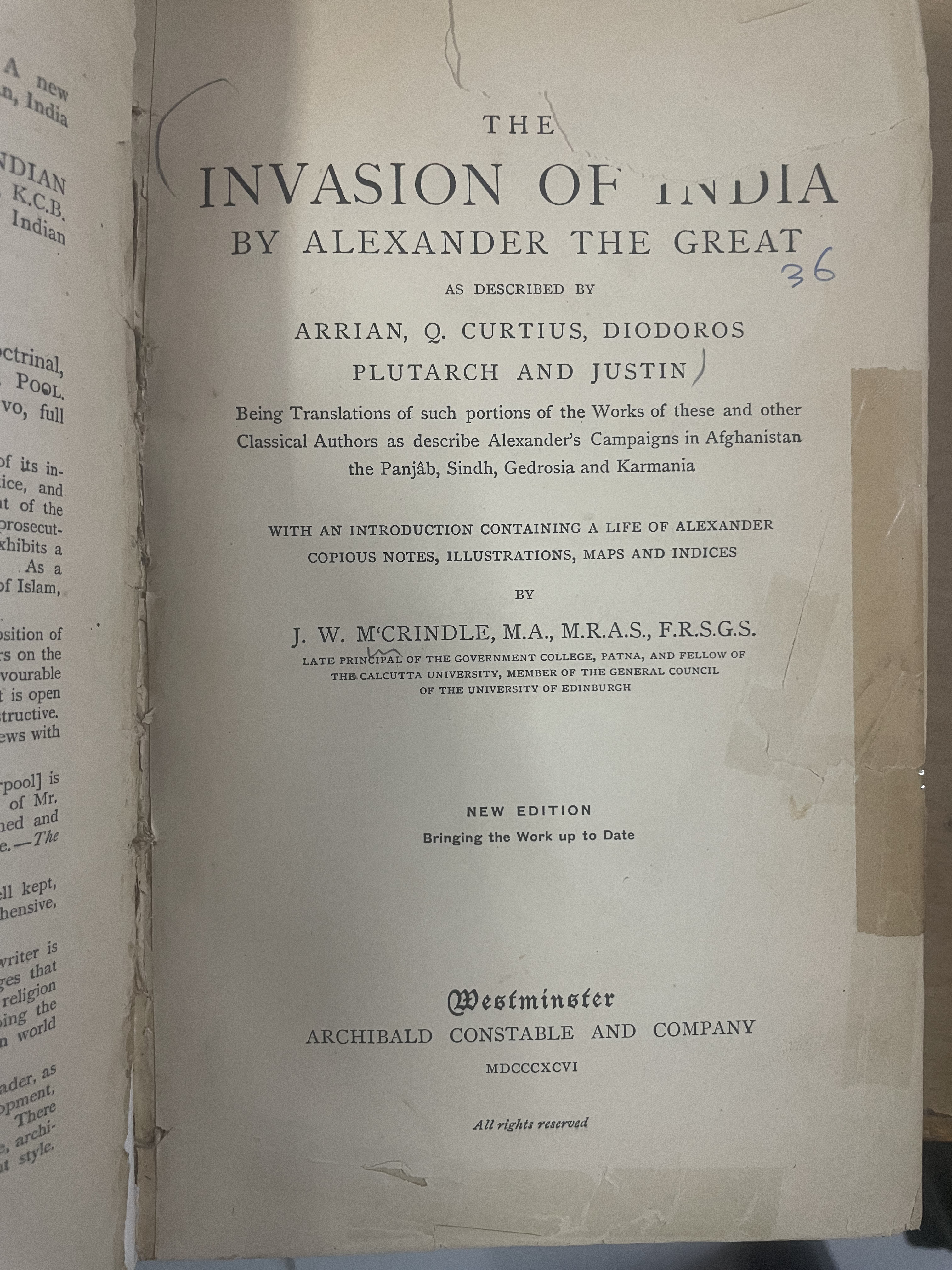The Invasion of India

About
Summary
Exquisite
TOC
Details
Related
URL
Images
Overview
The Invasion of India by Alexander the Great, written by J.W. McCrindle in 1896, compiles and translates accounts from various classical historians, such as Arrian, Q. Curtius, Diodoros, and Plutarch, detailing Alexander's military campaigns in India. The book provides insights into the strategies, cultural exchanges, and events surrounding Alexander's invasion of the Indian subcontinent.McCrindle's book meticulously recounts Alexander the Great's Indian campaign, which began in 327 BC and lasted until 325 BC. After conquering the Achaemenid Persian Empire, Alexander led his Macedonian army into the northwestern Indian subcontinent, expanding his empire to include Gandhara and the Indus Valley.
Key Themes
Military Strategy and Tactics: The book provides insights into Alexander's military genius, including his innovative tactics and strategies for conquering diverse territories.
Cultural Exchange: Alexander's campaign facilitated cultural exchange between the Greek and Indian civilizations, leading to the emergence of hybrid cultures.
Leadership and Motivation: The book explores Alexander's leadership qualities and his ability to motivate his troops through challenging campaigns.
The Limits of Conquest: The mutiny at the Hyphasis River highlights the limits of military conquest and the importance of troop morale.
Brutality of War: The accounts of sieges and massacres underscore the brutality of ancient warfare and its impact on civilian populations.
Cultural Significance
Historical Documentation: McCrindle's work preserves and translates primary source accounts of Alexander's invasion, providing valuable historical documentation.
Understanding Ancient India: The book offers insights into the socio-political conditions, economy, and culture of ancient India during Alexander's time.
Cross-Cultural Perspectives: The compilation of Greek narratives provides a cross-cultural perspective on the events, allowing for a more nuanced understanding.
Effects on Society
Limited Lasting Impact: While Alexander's invasion had a significant short-term impact, its long-term effects on Indian society and culture were limited.
Political Fragmentation: Alexander's campaign contributed to the political fragmentation of northwestern India, paving the way for the rise of the Maurya Empire.
Cultural Exchange: The invasion facilitated cultural exchange between Greek and Indian civilizations, influencing art, architecture, and philosophy.
Historical Awareness: McCrindle's book has contributed to raising awareness of Alexander's Indian campaign and its place in world history.
Conclusion
The Invasion of India by Alexander the Great by J.W. McCrindle remains a valuable resource for understanding a pivotal moment in ancient history. By compiling and translating the accounts of classical historians, McCrindle provides a comprehensive and accessible narrative of Alexander's Indian campaign, its challenges, and its consequences. The book sheds light on the military strategies, cultural exchanges, and political dynamics of the era, offering readers a deeper appreciation of the complexities of ancient warfare and cross-cultural interactions.
Title
The Invasion of India
Author
J W Mcrindle
Name of Publisher
Archibald Constable and Company
Publish Date
1896
Subject
A structured and detailed exploration of Alexander\'s campaign into India.
Vintage
1801-1900
Edition
New edition
Number of Pages
432
Category
History
Sub Category
Social Sciences
Rarity
RARE
